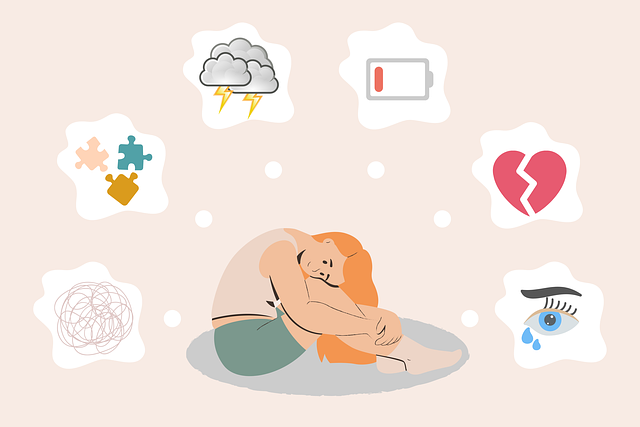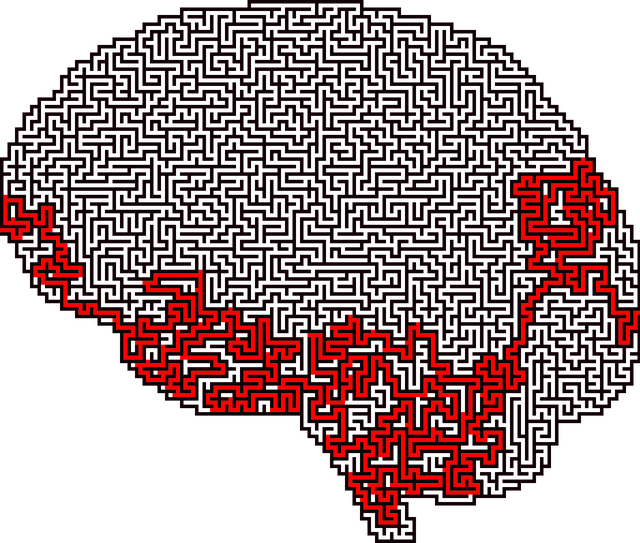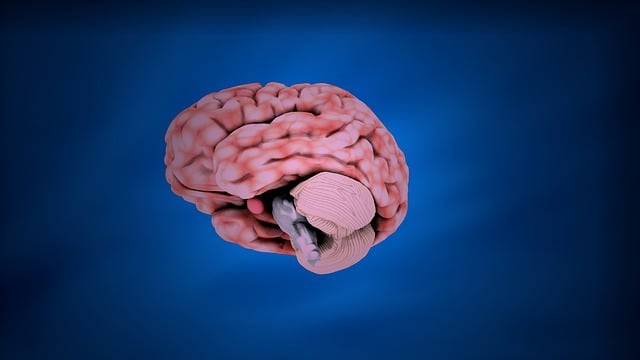Anxiety is a widespread issue affecting daily life and well-being, manifesting as worry, restlessness, insomnia, and physical symptoms. Solutions include therapy for adults anxiety, cognitive-behavioral therapy (CBT), social skills training, and mental health education. Self-care strategies like mindfulness meditation, exercise, sleep, and hobbies are powerful tools to manage anxiety alongside professional help. Integrating self-care into daily life complements therapy for adults with anxiety, fostering resilience and stress management through practices like journaling and open communication.
“Unwind and embrace a transformative journey towards better mental health with our comprehensive guide on enhancing self-care practices. In today’s fast-paced world, adults dealing with anxiety often overlook their well-being. This article delves into the intricate relationship between self-care and anxiety management, offering valuable insights for those seeking therapy for adults’ anxiety. From recognizing symptoms to implementing effective strategies, we explore practical tips to integrate self-care into daily routines, fostering a healthier, more balanced lifestyle.”
- Understanding Adult Anxiety: Symptoms and Impact
- The Importance of Self-Care in Managing Anxiety
- Effective Self-Care Strategies for Adults with Anxiety
- Integrating Self-Care into Daily Life: Tips and Tricks
Understanding Adult Anxiety: Symptoms and Impact

Anxiety among adults is a prevalent issue that can significantly impact daily life and overall well-being. Understanding this condition is the first step toward improving self-care practices for those affected. Adult anxiety manifests in various forms, with common symptoms including persistent worry, restlessness, insomnia, difficulty concentrating, and even physical manifestations like increased heart rate and muscle tension. These symptoms can disrupt everyday routines and relationships, leading to a decline in mental health and quality of life.
The impact of adult anxiety extends beyond the individual, affecting social interactions and productivity. Many adults struggling with anxiety may benefit from therapy, such as cognitive-behavioral therapy (CBT), which has proven effective in managing symptoms. CBT encourages self-awareness exercises and helps individuals challenge negative thought patterns. Additionally, social skills training and mental health education programs designed for adults can foster coping strategies, improve communication, and enhance overall resilience against anxiety.
The Importance of Self-Care in Managing Anxiety

Self-care plays a pivotal role in managing anxiety, a condition that affects millions worldwide. Beyond conventional therapy for adults with anxiety, incorporating self-care practices into daily routines can significantly enhance emotional healing processes. Mindfulness meditation, for instance, has been scientifically proven to reduce anxiety symptoms by promoting present-moment awareness and positive thinking.
By prioritizing self-care, individuals engage in activities that nurture their physical, mental, and emotional well-being. This may include regular exercise, adequate sleep, a balanced diet, and engaging in hobbies or creative outlets. These practices not only alleviate anxiety but also foster a sense of calm and resilience, equipping individuals with tools to navigate life’s challenges more effectively.
Effective Self-Care Strategies for Adults with Anxiety

Many adults struggling with anxiety can greatly benefit from incorporating effective self-care strategies into their daily routines. One powerful tool is mindfulness meditation, which has been shown to reduce anxiety and improve overall mental well-being. By dedicating just a few minutes each day to focused breathing and present-moment awareness, individuals can learn to calm their minds and manage anxious thoughts more effectively.
In addition to mindfulness practices, social skills training can play a crucial role in alleviating anxiety symptoms, especially for those who experience social anxiety or fear of judgment. Developing strong communication skills and building a supportive network of friends and family can create a sense of belonging and security, further enhancing overall mental health. For more severe cases, seeking professional help through therapy for adults with anxiety is an essential step towards recovery. Mental health professionals can conduct thorough risk assessments (a critical component of any treatment plan) to identify underlying issues and tailor therapeutic approaches like cognitive-behavioral therapy (CBT) or exposure therapy to meet individual needs.
Integrating Self-Care into Daily Life: Tips and Tricks

Integrating self-care into your daily life is a powerful tool for managing and improving mental health, especially when coupled with therapy for adults anxiety. It’s not just about taking time for yourself; it’s about cultivating practices that nurture your mind, body, and soul. A consistent self-care routine development can be transformative, serving as a buffer against stress and fostering resilience.
Start small by incorporating simple self-awareness exercises like mindfulness meditation or journaling. These practices promote introspection, helping you understand your triggers and emotions better. Additionally, consider communication strategies that prioritize open, honest dialogue with yourself and others. Whether it’s sharing your feelings with trusted friends or seeking professional guidance, building a supportive network is integral to a holistic self-care routine. Through these efforts, you can create a balanced lifestyle where self-nurturing becomes second nature, ultimately contributing to better mental health outcomes.
Anxiety can significantly impact our daily lives, but understanding its symptoms and effects is the first step towards managing it effectively. The importance of self-care in mitigating anxiety cannot be overstated, as it empowers individuals to take control of their mental well-being. By implementing practical self-care strategies, such as mindfulness, exercise, and quality sleep, adults suffering from anxiety can find respite and improve their overall quality of life. Integrating these practices into daily routines allows for better stress management, fostering a sense of balance and resilience. Remember, seeking therapy for adults with anxiety is also a valuable option, offering tailored support and tools to navigate and overcome anxiousness.














